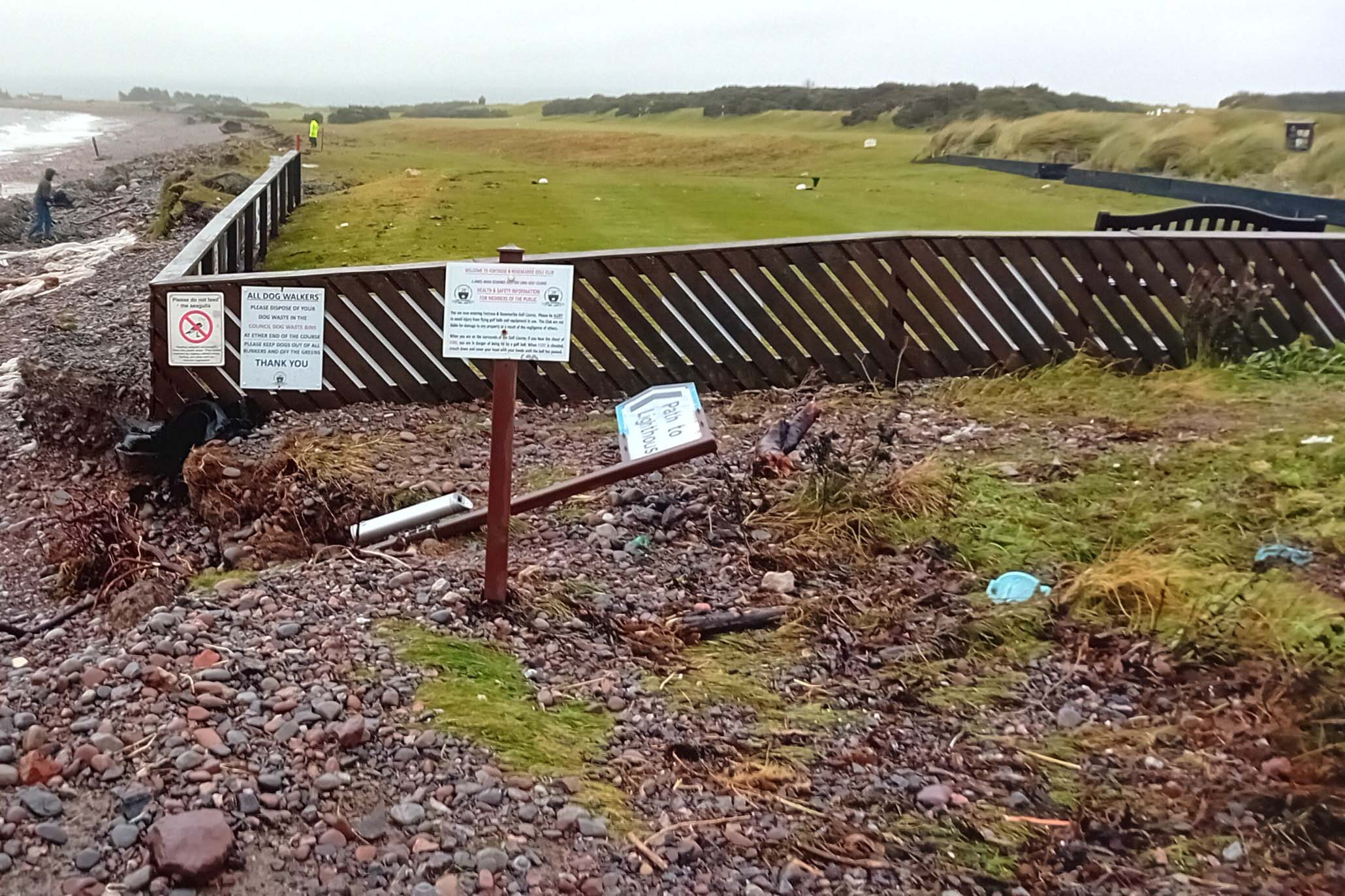
Golf clubs warned: Pay more or staffing crisis will worsen
Industry leaders say there are rising vacancies in key roles at golf clubs – and action must be taken now
Golf clubs are in a staffing crisis – and industry leaders fear it could harm the huge participation boost that has come with the pandemic.
Wages, pressures of the job, and a re-evaluation of life goals since the onset of coronavirus, have been driving club managers, general managers, greenkeepers, and hospitality staff out of the industry and there are shortages across the sport.
The stark assessment, described as a “big issue” and a “crisis”, was outlined by the chiefs of some of golf’s main professional bodies at the BIGGA Turf Management Exhibition in Harrogate.
Jim Croxton, chief executive of the British and International Golf Greenkeepers’ Association (BIGGA); Tom Brooke, chief executive of the Golf Club Managers’ Association (GCMA); Richard Flint, England Golf chief operating officer; and Rhett Evans, chief executive of the Golf Course Superintendents Association of America (GCSAA), said the industry had to speak with one voice to make the profession more attractive during a discussion on the challenges of golf club staff recruitment and retention.
Croxton outlined the issues facing the greenkeeping industry in the UK, noting the National Living Wage for full time staff was set to reach around £20,000 this year.
“That’s pretty much the low wage in the country,” he said. “And I can remember, not very long ago, seeing greenkeeper assistant roles advertised significantly below these. So if you can get minimum wage doing anything, then I think we’ve got a challenge to get people to work at 5am, work weekends, and work in the cold. There are some issues we’ve got to really address.”
Employment statistics showed that people, particularly in the 16-24 age bracket, were being far more selective about where they worked, and Croxton said at the end of 2021 there were 1.2 million job vacancies in the UK – “a huge amount”.
“We are now in a market where the employee is king and we are struggling to fill these roles in the industry.”
He added: “The reasons for that, I think, are reasonably clear. If you’re working in hospitality and leisure, you’re working in somebody else’s leisure time.
“Therefore, you are working in unsociable hours. Traditionally these have been roles that are lower paid. I think we have seen, particularly post pandemic, people reviewing their work life balance.
“We know that there are jobs out there where you can get paid a lot more, and we know that people are choosing not to do some of the jobs that we’re offering them.”
Croxton said: “We’re in rude health as a sport, and we’re in pretty poor health, as far as I can see, in terms of having people in golf clubs to meet the demands of these new golfers.”
Tom Brooke said the GCMA was seeing double the amount of recruitment advertising coming through their channels compared with two years ago.
“We’ve got a big issue in front of us,” he explained. “Without staff retention, we are not going to achieve the member retention targets that we’re setting out for. It’s an issue throughout golf clubs.
“I’ve had numerous conversations over the last couple of weeks with golf club managers, and others in the industry, about the challenges but also some of the solutions they are trying to find and trying to navigate their way through.
“Certainly, at greenkeeper level, there is a noticeable gap, but we are seeing the same at club management as well.”
Brooke added two interesting factors had arisen out of the pandemic, the first being those managers who had been looked after by their clubs and now felt a sense of loyalty to them and didn’t want to risk moving where that might not be the case.
“But equally more concerning for me is the amount of club managers just walking away from the industry, or walking away from their clubs, because of mental health issues, wellbeing issues, lifestyle challenges, and wanting to find a career that is less challenging, less demanding, with less pressure on personal time and less impactful on mental health and wellbeing.
“That’s just becoming so much more of a focus for us, as an employer, employee, representative, and should be for any employer in any business.
“That’s something we need to be a lot more aware of and, between the home unions, ourselves, we need to be really talking to club boards, club committees, and club owners about how they factor that into their employment strategies and training and development opportunities.”
Richard Flint, meanwhile, said there had been a 90,000 increase in membership in England over the last 12 months – a rise of around 14%.
“Golf clubs are in a healthy place. There are waiting lists. Financially, golf is in a good place,” he said. “But the next 12 to 18 months, as we all know, is going to be a challenge in terms of squeeze on disposable income.
“Those that have chosen membership now, will they choose that in 12 to 18 months’ time? So retention from a golf club’s point of view is absolutely critical but the point about that, from a financial perspective, is now we have a moment in time as an industry, as golf clubs, to invest in our workforce and to support the workforce.
“When we at England Golf talk about workforce, of course the greenkeepers, the club managers and coaches are important. But we also have to support the volunteers.
“There are around 46,000 volunteers within golf clubs across England. Without any of those volunteers – be it organisers or parents – the game wouldn’t exist at certain levels.
“The reality here is how do we get that balance between a paid workforce and the volunteer workforce? That’s a challenge for us and a collective voice is absolutely critical.”

Rhett Evans said the situation in the UK was mirrored in the United States, where he outlined that 47 million people quit their jobs during the pandemic.
“It’s time that we reset this,” he said. “And we’ve got to change the narrative. Many of us who grew up in this industry have that badge of honour that we were the ones that got up early, we were the ones that worked on Christmas, we were the ones, we were the ones, we were the ones.
“We feel some obligation to pass that along – that you’ve got to receive that same badge of honour and courage. Society now doesn’t want that badge. They don’t. That’s not what they are about.”
The panel looked at what could be done to meet the challenges, including sharing success stories better, training for committees and volunteers and more “prevailing” wages. They said such initiatives would take time.
Evans added: “Sometimes it takes a crisis to create that change. We are going to have to go through a significant disruption for business models to change.
“I know a lot of us don’t want to hear that. But, unfortunately, it takes time for those individuals referenced to understand that if we’re not protecting the greatest asset of our facility, the golf course is going to eventually suffer.
“So we’ve got to pay prevailing wages and we’ve got to put our resources and our time and attention into that operation.”
He added: “Supply and demand is a principle that is real. As they [clubs] continue to not fill those jobs, and they start to see the effect on revenue and the condition of the golf course, they’ll start to realise [they] have to make those changes.”
And Brooke concluded: “The reality is we’ve got 2,500 small to medium sized businesses in the UK and, depending on their governance, there is a huge range of leadership styles and management structures.
“Trying to get one voice and enabling a succinct message to help with this challenge is something, collectively, we’re going to have to take some real responsibility for.”
Does your club have a staffing crisis? Is it short of full time and part time hospitality staff and golf greenkeepers? Are they hunting for a new general manager? Let me know the situation in the comments, or tweet me.
Steve Carroll

A journalist for 25 years, Steve has been immersed in club golf for almost as long. A former club captain, he has passed the Level 3 Rules of Golf exam with distinction having attended the R&A's prestigious Tournament Administrators and Referees Seminar.
Steve has officiated at a host of high-profile tournaments, including Open Regional Qualifying, PGA Fourball Championship, English Men's Senior Amateur, and the North of England Amateur Championship. In 2023, he made his international debut as part of the team that refereed England vs Switzerland U16 girls.
A part of NCG's Top 100s panel, Steve has a particular love of links golf and is frantically trying to restore his single-figure handicap. He currently floats at around 11.
Steve plays at Close House, in Newcastle, and York GC, where he is a member of the club's matches and competitions committee and referees the annual 36-hole scratch York Rose Bowl.
Having studied history at Newcastle University, he became a journalist having passed his NTCJ exams at Darlington College of Technology.
What's in Steve's bag: TaylorMade Stealth 2 driver, 3-wood, and hybrids; TaylorMade Stealth 2 irons; TaylorMade Hi-Toe, Ping ChipR, Sik Putter.










